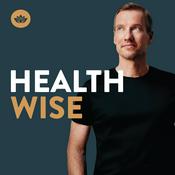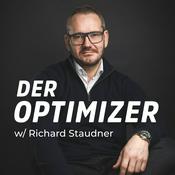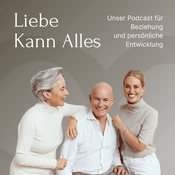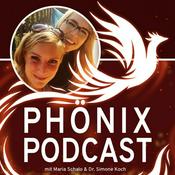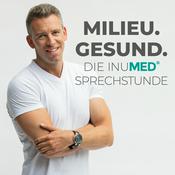GeriPal - A Geriatrics and Palliative Medicine Podcast
Alex Smith, Eric Widera
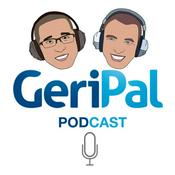
Neueste Episode
392 Episoden
- Do you think your hospital should allow unilateral DNR orders? Under what circumstances? Through what process? Do you think that when you obtain the assent of a family to not code their loved one, that assent DNR should be counted as a unilateral DNR order? Should we document unilateral DNR and the rationale? Why for DNR, when we don't document unilateral dialysis not offered, or unilateral no ECMO offered? Is the assent of a family member to a statement that we will not code their loved one a nudge, and is the assent approach ethical? Reasonable people will disagree, as we do on this podcast.
Our guests today are Gina Piscitello, Erin DeMartino, and Will Parker, authors of a terrific viewpoint in JAMA about the need to address inadequate documentation of unilateral DNR orders. You might recall Gina was a guest on our lively podcast about slow codes, and we pick up where that podcast left off.
We highlight the many clinical, practical, and ethical issues at stake, including Gina's finding that during Covid, 3% of critically ill patients receiving pressors had a unilateral DNR order. Black patients and those who spoke Spanish had higher rates of unilateral DNR. That variation should trouble those in favor of unilateral DNR orders. We talk about variation Gina found at the state and health system level, and what exactly is concerning, the variation itself, or the lack of thought and care that went into some of these policies.
Are you a heartbreaker? Dream Maker? Love taker? Don't you mess around with me. (song hint)
-Alex - The idea of embedding various forms of non-emergency care in the emergency department makes a WORLD of sense. If an older adult comes into the ED with a fall, the minimum the ED has to do is address the fall injury and send them out. But many emergency providers realize this is often a band aid. They see that patient again the next time they fall. And again. And again. The same could be said for the patient who is malnourished and dehydrated and admitted for "failure to thrive," again. And again.
Our two guests today, Liz Goldberg and Lauren Southerland, both emergency medicine physician-researchers, have had enough. On our podcast today they discuss how these sorts of experiences led them to argue that other services that can address the underlying causes that lead to ED visits. Liz Goldberg developed the GAPcare model to address falls, which includes a physical therapist and pharmacist seeing patients on the spot in the ED. Lauren Southerland got Columbus Ohio Office of Aging staff to re-locate from their desks to the emergency department, where they could sign patients up for home delivered meals, medical transportation, adult day services, home modification such as grab bars, and utility assistance for electricity, gas, and water bills.
With GAPcare, Liz saw a 66% drop in ED visits for fall over 6 months from her pilot (subsequent fall outcomes of the GAPcare II study will be linked here when published). Remarkable, particularly in the context of the primary care STRIDE intervention, which did not reduce injurious falls (e.g. the type that would result in an ED visit). Maybe the ED is just a better place to intervene? Patients are motivated to change. Get the physical therapist and pharmacist in there!
In a study published in JAGS, Lauren found 50% of participants were linked to a new Office of Aging service initiated during the ED visit, with no increase in ED length of stay or hospital admission rate. See also this terrific JAGS editorial on Lauren's paper by Liz. Putting on my JAGS editor hat - both the study and editorial have terrific color figures. A great way to increase your odds of review and acceptance at JAGS is to include one or more high-impact color figures that convey the main findings or points of your manuscript.
We talk about the potential downsides, real and perceived in embedding care in the ED. Should everything be embedded? We talk about how these interventions relate to geriatric ED certification. Lauren talks about a remarkable model in Australia that includes a geriatric RN embedded in the ED.
Most encouraging is that Liz and Lauren are finding other adopting these interventions. Word is spreading. Other emergency providers have had enough of the endless cycle. Enough.
And I got to belt out Gravity, by John Mayer!
-Alex - Today we interviewed Bob Wachter about his book, "A Giant Leap: How AI Is Transforming Healthcare and What That Means for Our Future." You may recall we interviewed Bob in April 2024 about AI, and at that time he was on the fence about AI - more promise or more peril for healthcare? As his book's title suggests, he's come down firmly on the promise side of the equation. On our podcast we discuss:
Why Bob wrote this book, at this time, and concerns about writing a static book about AI and Healthcare, a field that is dynamic and shifting rapidly. He's right though - we've not had a "ChatGPT"-launch type moment recently.
Top 5 or so ways in which Bob uses AI for work, from clinical care to book writing
Concerns about job losses in healthcare, and will we still need doctors?
AI for diagnosis, and the recent NEJM Clinical Case in which recent GeriPal guest and superstar clinician-educator Gurpreet Dhaliwal beats an AI.
UpToDate vs OpenEvidence
Trust issues - should we trust AI after being let down before? Clinicians felt burned by their experience with the hype and promise of EHRs - but they've been much less a game changer and much more a soul sucking chore designed to maximize billing rather than improve patient care. Yet early returns on AI have largely been positive. Time saved from writing notes, prior authorizations, and summarizing charts…all to the good!
Sadly, we didn't have Bob on piano singing the song for this one. He was in the office, not home. So I made do with ChatGPT's choice, Handle With Care, which has some surprisingly pertinent lyrics about AI in healthcare, including:
"Been beat up and battered around
Been sent up, and I've been shot down
You're the best thing that I've ever found
Handle me with care"
Enjoy!
-Alex Smith The Role of Specialty Palliative Care in Cancer Surgery: Rebecca Aslakson & Myrick Shinall
29.1.2026 | 46 Min.Recent randomized controlled trials have shown that routine perioperative palliative care does not improve outcomes for patients undergoing curative-intent cancer surgery. No, that wasn't a typo. Regardless of how the data were analyzed, the findings remained consistent: perioperative palliative care DID NOT improve outcomes in the only two randomized controlled trials conducted in this area—the SCOPE and PERIOP-PC trials.
Null trials like these often receive less attention in academic and clinical settings, but they can be profoundly practice-changing. Consider the Shannon Carson study on palliative care for chronically critically ill patients. While some have argued it "wasn't a palliative care study," I've always regarded it as one of the most significant studies for understanding not what works—but what doesn't—for palliative care in specific patient populations.
The same holds true for the SCOPE and PERIOP-PC trials. Both were null, but their findings are deeply relevant to clinical practice. That's why we invited the lead authors, Rebecca Aslakson (PERIOP-PC) and Myrick "Ricky" Shinall (SCOPE), to share insights into what they did in their studies and why they think they got the results that they did.
One key takeaway for me from this discussion was the idea that patients undergoing curative-intent surgery might simply be too early in their cancer trajectory to derive meaningful benefits from palliative care, and maybe the focus should be more on geriatrics. I especially appreciated the closing discussion about the future of research in this area: if routine perioperative palliative care doesn't improve outcomes, what should the next generation of studies focus on?
Eric Widera
Studies we talk about during the podcast
Aslakson et al. Effect of Perioperative Palliative Care on Health-Related Quality of Life Among Patients Undergoing Surgery for Cancer: A Randomized Clinical Trial. JAMA Netw Open. 2023
Shinall et al. Effects of Specialist Palliative Care for Patients Undergoing Major Abdominal Surgery for Cancer: A Randomized Clinical Trial. JAMA Surg. 2023
Carson et al. Effect of Palliative Care–Led Meetings for Families of Patients With Chronic Critical Illness: A Randomized Clinical Trial. JAMA. 2016
Holdsworth et al. Patient Experiences of Specialty Palliative Care in the Perioperative Period for Cancer Surgery. JPSM. 2024
Williams et al. Patient Perceptions of Specialist Palliative Care Intervention in Surgical Oncology Care. Am J Hosp Palliat Care. 2025
Yefimova et al. Palliative Care and End-of-Life Outcomes Following High-risk Surgery. JAMA Surg. 2020The Future of Palliative Care? Community-Based Models with Alan Chiu, Mindy Stewart-Coffee, and Ben Thompson
22.1.2026 | 47 Min."I just want to say one word to you. One word. Plastics… There's a great future in plastics."
This iconic line from the movie The Graduate is at the top of my mind when I think about where we are heading in healthcare. I've interpreted "plastics" as symbolizing a dystopian, mass-produced future of medicine—where artificiality and inauthenticity dominate in the pursuit of efficiency and profit margins. After listening to today's podcast on the growth of community-based palliative care, I find my perspective shifting on this quote. Perhaps the advice given for a future in plastics reflects the past generation's established worldview, failing to recognize a countercultural revolution seeking transformation and meaningful change, even if it may come across as a little brash.
In this thought-provoking episode of the GeriPal podcast, we are joined by Alan Chiu (Chief of Palliative Care at Monogram Health), Mindy Stewart-Coffee (National Vice President of Palliative Care at Optum Home and Community), and Ben Thompson (National Medical Director for Hospice and Palliative Care at Gentiva) to discuss this revolution happening in palliative care. The conversation centers around the rapid growth and investment in community-based palliative care, which has emerged as a key area of innovation and opportunity to meet the largely unmet needs of patients living with serious illnesses. With a focus on expanding access, improving outcomes, and addressing workforce shortages, the guests explore how value-based care models are reshaping palliative care delivery.
The discussion highlights the differences between traditional fee-for-service models and newer value-based care approaches, including how they incentivize care. We take a deep dive into the risks and benefits of these models, emphasizing the importance of maintaining high standards of care while fostering innovation. We also delve into the role of for-profit organizations and private equity in driving change, acknowledging concerns about motivations while recognizing that these entities can help spur innovation and improve access when led by clinicians committed to patient-centered care.
Ultimately, this podcast serves as a call to action for the palliative care community to help shape not just the "Wild West" of community-based care, but palliative care 3.0 as a whole. Do we sit back and wait for a future dominated by a plastic version of palliative care, or do we help lead this revolution to ensure it maintains the authentic heart of what brought us to this field? As Diane Meier aptly warns, "if you are not at the table, you're on the menu."
Eric Widera
Of Note: the views expressed in this podcast are our guests' own opinions and not representative of their organizations.
Weitere Gesundheit und Fitness Podcasts
Trending Gesundheit und Fitness Podcasts
Über GeriPal - A Geriatrics and Palliative Medicine Podcast
A geriatrics and palliative medicine podcast for every health care professional.
Two UCSF doctors, Eric Widera and Alex Smith, invite the brightest minds in geriatrics, hospice, and palliative care to talk about the topics that you care most about, ranging from recently published research in the field to controversies that keep us up at night. You'll laugh, learn, and maybe sing along.
CME and MOC credit available (AMA PRA Category 1 credits) at www.geripal.org
Podcast-WebsiteHöre GeriPal - A Geriatrics and Palliative Medicine Podcast, einfach. besser. essen. und viele andere Podcasts aus aller Welt mit der radio.at-App

Hol dir die kostenlose radio.at App
- Sender und Podcasts favorisieren
- Streamen via Wifi oder Bluetooth
- Unterstützt Carplay & Android Auto
- viele weitere App Funktionen
Hol dir die kostenlose radio.at App
- Sender und Podcasts favorisieren
- Streamen via Wifi oder Bluetooth
- Unterstützt Carplay & Android Auto
- viele weitere App Funktionen


GeriPal - A Geriatrics and Palliative Medicine Podcast
Code scannen,
App laden,
loshören.
App laden,
loshören.









